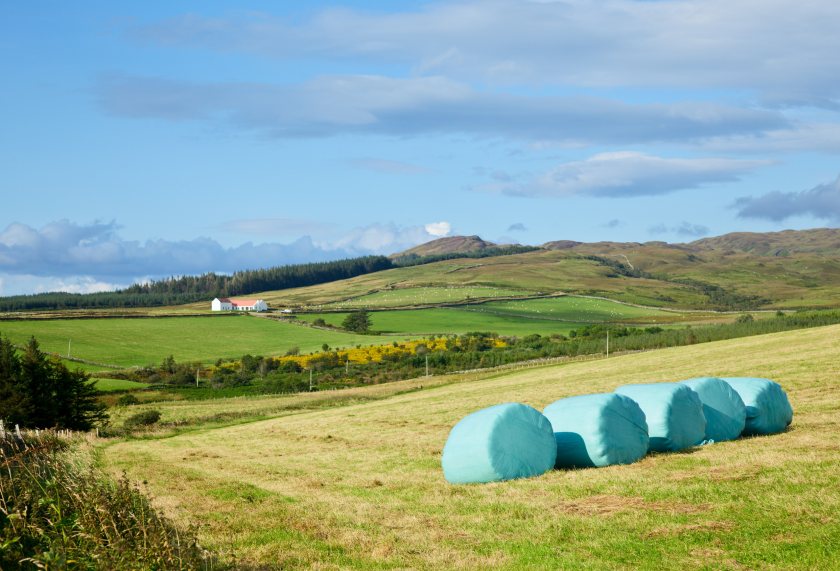Land Reform Bill risks 'hammer blow' to Scotland's rural economy

Scotland’s rural economy faces a potential “hammer blow” if the government presses ahead with its current Land Reform Bill, according to rural businesses.
Scottish Land & Estates (SLE) has warned MSPs that the legislation must be “workable, proportionate and evidence-based” to avoid doing lasting harm.
With Stage 3 of the Bill due to begin today (28 October), SLE has issued an urgent briefing to parliament highlighting what it calls “major flaws” in the proposals — and warning that some amendments could make the legislation “even more damaging” for rural businesses and investment.
The Bill aims to address long-standing concerns over land ownership concentration in Scotland, where a small number of individuals and organisations own a significant proportion of private rural land. However, SLE says that without substantial revision, the legislation risks doing more harm than good.
In its submission to MSPs, SLE identified several major problem areas, including new powers that it says would interfere with the land market, create bureaucratic burdens for land managers, and undermine investor confidence across the countryside.
One of the most controversial measures would allow the breaking up of estates for sale through lotting and introduce a property transfer test — proposals SLE described as “serious and unworkable interference in the land market”. The organisation said these steps lack any clear evidence base and risk deterring long-term investment.
SLE also highlighted widespread confusion over which landholdings would actually fall under the new rules. The Bill’s “hugely complex” mechanism for identifying large landholdings could make it almost impossible to know what land is covered, with officials unable to clarify definitions such as “contiguous holdings” and “connected persons”.
Another area of concern is the proposed prior notification process, which would require the Scottish government to alert not only local communities but potentially “anyone anywhere in the world” who had expressed an interest in purchasing land from a large holding.
SLE said this would effectively cast ministers in the role of “global estate agents”, creating cost and confusion while offering “little tangible benefit to rural Scotland”.
The group also warned that proposed Land Management Plan requirements risk becoming “a bureaucratic nightmare” for large farms and estates. Some amendments would compel annual reporting to the Scottish Land Commission, creating “excessive” administrative burdens without clear benefit for communities or the environment.
While stressing that it supports the principle of land reform, SLE said the Bill in its current form is not fit for implementation and could stall rural development, deter investment and undermine job creation, climate and biodiversity projects across Scotland.
Concerns about the Bill’s drafting have also been echoed by a range of voices — including former Green MSP Andy Wightman, several parliamentary committees, and rural law and accountancy firms.
Wightman and Don Macleod, head of property at a leading Edinburgh firm, have jointly written to Cabinet Secretary Mairi Gougeon, urging her to delay Stage 3 and return the Bill to committee for further scrutiny.
SLE said it had also submitted formal legal advice to the government identifying “significant issues” with the drafting of key provisions.
The group's chief executive Sarah-Jane Laing warned that the legislation could have severe unintended consequences if pushed through in its current form.
“Research endorsed by the Scottish government demonstrates that estates generate an estimated £2.4 billion GVA each year for the Scottish economy and support around 57,000 jobs – roughly one in ten rural jobs,” she said.
“The reality is that this Bill, if passed in its current form, risks delivering a hammer blow to that rural economy by discouraging investment, increasing red tape and threatening the break-up of successful estate and large farm and land-based businesses.”
Laing said that while some deficiencies had been addressed during the Bill’s progress, fundamental problems remain, and “much of the detailed work will fall to secondary legislation, regulation and guidance”.
“The scale and complexity of that task should not be underestimated – it could take years before key elements of the Bill are practically workable, if at all,” she added.
SLE has reiterated that it is not opposed to reform, but is calling for a measured, evidence-led approach that supports rather than penalises rural enterprise.
“We recognise that the Scottish government wishes to pursue land reform, and there are many aspects we can support,” Laing said. “However, the current Bill – and many of the proposed amendments – risk creating bad law. That view is shared by campaigners, legal experts and professionals across finance, property and land management.”
With debate on Stage 3 amendments beginning, SLE says the coming days will be crucial in deciding whether land reform strengthens Scotland’s rural future — or sets it back a generation.








